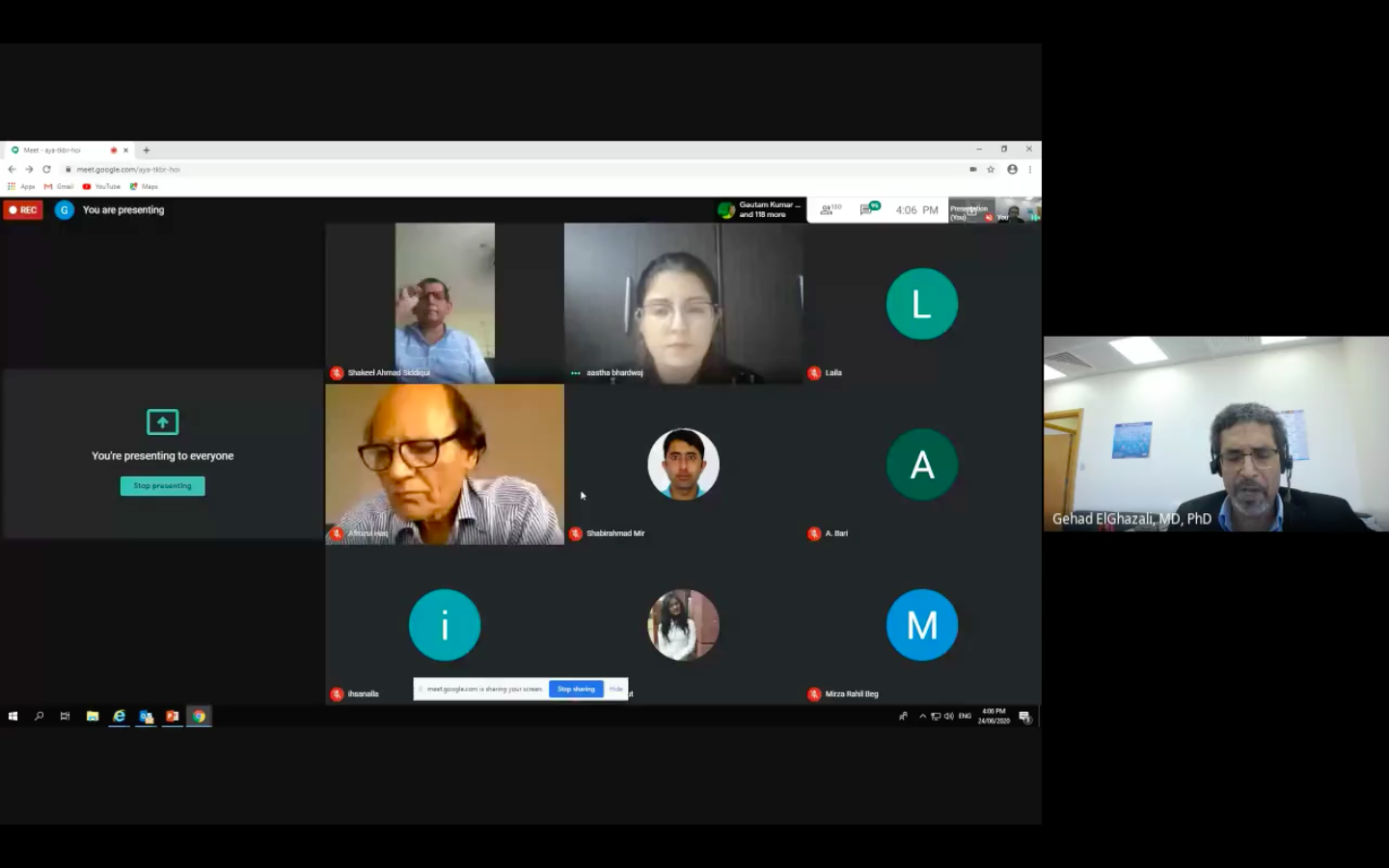Jamia Hamdard organized International Webinar on “MICRONUTRIENTS AND IMMUNITY IN COVID-19”
New Delhi: COVID-19 has brought in tough times for all kinds of businesses, ventures, and production houses. Nutritional remedies such as calcium, magnesium, vitamin D, zinc, folate, omega-3 fatty acids, quercetin, and more all play a critical role in fortifying the immune system, which, if properly nourished, should have little problem fending off the disease. Keeping all this in view the Department of Food Technology, School of Interdisciplinary Sciences and Technology (SIST) organized an International Webinar on “MICRONUTRIENTS AND IMMUNITY IN COVID-19” The session was presided over by some great speakers from the field: Prof. Michael Holick, Prof. Afrozul Haq, Dr. Laila O. Abdel Wareth, Dr. Gehad El Ghazali.
Prof. Michael Holick from the University of Boston, USA presented very informative lecture on the role of vitamin D in patients suffering from viral infections. He elaborated about the levels of vitamin D with seasonal variations and latitude. Furthermore Prof. Holick showed that a small amount of vitamin D (600 IU) supplementation can trigger a large number of genes. He also explained the role of active form of vitamin D in innate immunity and adaptive immune responses and how vitamin D control the cytokine storm in COVID-19. His key message was that vitamin D can improve over all health and has a tremendous role to play in COVID-19.
Prof. Afrozul Haq from the Department of Food Technology, Jamia Hamdard, presented his lecture on the role of Vitamin D in COVID-19 infection. He suggested how vitamin D can modulate the immune responses to protect against Corona virus. Vitamin D is a secosteroid hormone with various skeletal and non-skeletal effects including regulation of innate and adaptive immune responses. Vitamin D binding to the VDRE in various gene-promoter-regions, decreases expression of pro-inflammatory-cytokines and increases production of antiviral and antibacterial proteins, suggesting an important role in antiviral innate adaptive immunity. Importantly, vitamin D is also involved in renin–angiotensin system regulation, which is regulated by entry of the SARS-Cov-2 virus into cells via the ACE2 receptor, leading to cytokine storms, with subsequent fatal respiratory distress Syndrome. The key messages of Prof. Haq’s presentation were as follows:
Vitamin D deficiency is associated with a number of respiratory diseases, with notable effects on respiratory infections and lung function
Supplementation with vitamin D appears to improve many lung conditions
Vitamin D has already been shown to protect against acute respiratory infections, and it was shown to be safe. We believe that we can advise vitamin D supplementation to protect against COVID–19 infection
The antimicrobial peptides LL-37 and human P-defensin 2 have also been shown to have anti-viral properties against influenza virus, reducing disease severity and viral replication, and inhibiting infectivity.
Dr. Gehad ElGhazali, lead Immunologist and Senior Consultant at Sheikh Khalifa Medical City, Abu Dhabi, UAE presented his talk on Anti SARS-COV-2 antibody detection. His key messages were as:
Spike “S” and Nucleocaspid “N” antigens two important immunogenic antigens on the surface of the SARS-COV2
Antibodies directed against RBD of the “S” spike antigen interface with virus binding to the host cells via ACE2
Antibodies directed against the “S” antigen are considered as virus neutralizing antibodies
Antibodies directed against “N” antigen are non neutralizing antibodies
Dr. Laila Abdel-Wareth, Deputy CEO of the National Reference Laboratory(NRL), Abu Dhabi, UAE presented a very important and interesting talk entitled “ Laboratory Diagnosis of COVID-19 Infection. She summarized the talk in the following messages:
RT-PCR is the gold standard test for the diagnosis of acute COVID-19 infection
Serologic-antibody assays can help in the diagnosis of late COVID-19 infection when RT-PCR is expected to be negative
Serologic assays can also be used to determine eligibility of plasma donation from patients recovered from COVID-19 disease
It also has a great value in epidemiological studies of the SARD-COV-2 virus pandemic.

